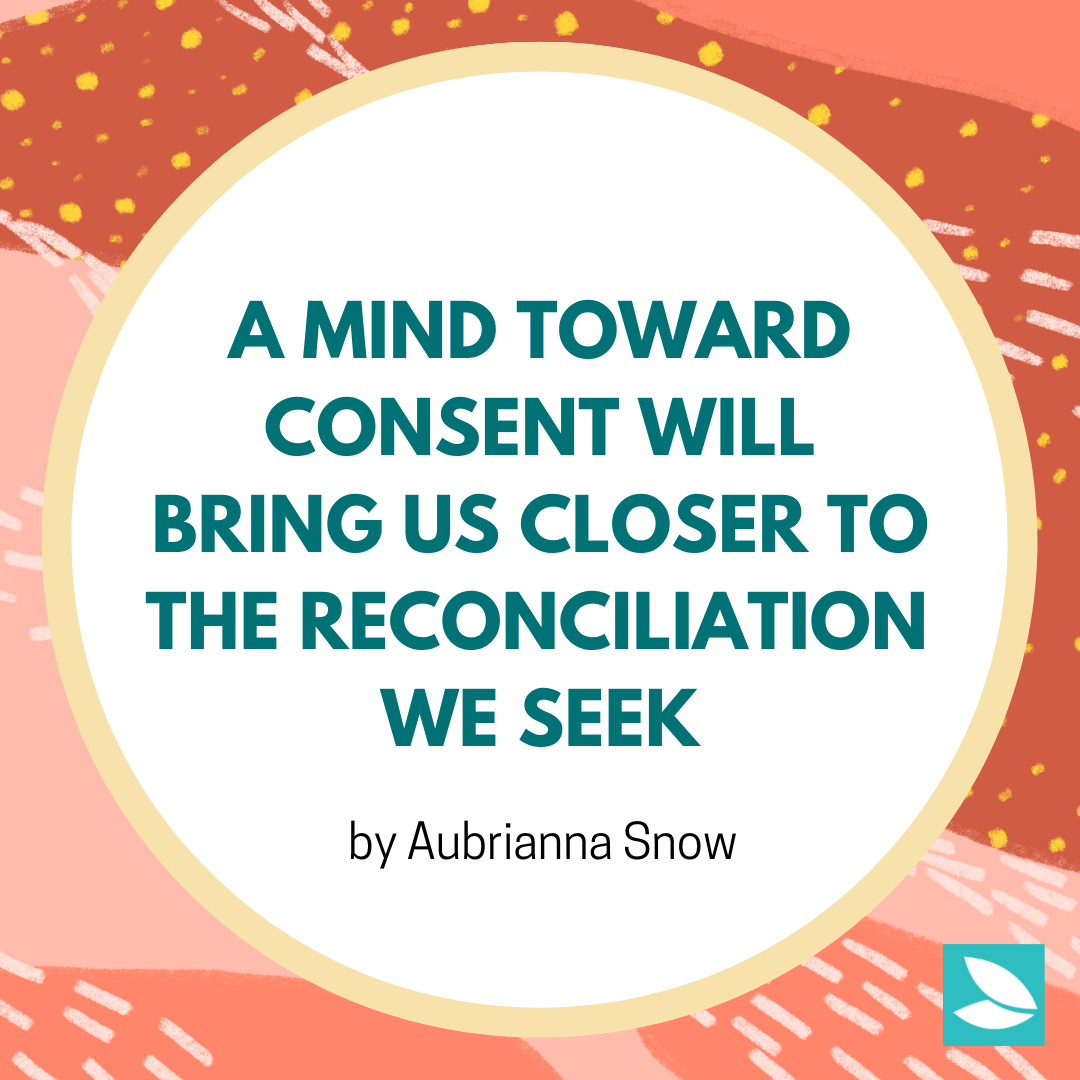A Mind Toward Consent Will Bring Us Closer to the Reconciliation We Seek
Written by : Aubrianna Snow
Excerpted from Muskrat Magazine
Comprehensive sex education is a human right and yet there is much to be desired in Canadian curriculums. Growing up in Alberta during the mid-2000’s, the sex education I received in both the public and Catholic schools I attended was spotty at best. It only covered reproduction, STI prevention, and abstinence. I didn’t learn what consent was until my first year of university, as an adult. Most Canadians don’t properly learn it at all.
Being of mixed Mi’kmaq and settler descent, I see the connection between colonialism and the high rates of sexual violence that Indigenous people in Canada face. From forced sterilization to restricted freedoms for practicing culture and tradition to the legacy of the residential school system and MMIWG2S+, Canada’s ongoing genocide against Indigenous peoples often manifests in the theft of Indigenous peoples’ right to choose for themselves. I feel the impacts of these violations of consent. I see the ways they affect my life and the lives of my peers.
On this National Day for Truth and Reconciliation, it’s important to start thinking about not only dismantling the structures that hold Indigenous people back, but also replacing them with systems and beliefs that are empowering and uplifting. Now more than ever, we have the resources and opportunity to work towards more equitable and inclusive spaces for all people in Canada.
Normalizing conversations about consent means safer spaces and community-building. It means empowered personal decision making and ongoing reflection on the obligations we have to each other. In a country built on a lack of consent, applying consent in daily life is an important step that everyone can take toward building a better Canada.
The success of the inaugural Consent Awareness Week lays an important foundation for creating conversations about consent, but it’s only a first step in building a consent culture. Empowering Indigenous activism within the anti-violence movement is essential for moving this work forward in a sustainable way. On this National Day for Truth and Reconciliation, empower Indigenous perspectives within your own organization and community.
Please see below for some learning resources. I encourage you to also do your own research as it would be impossible to list all of the incredible work being done by Indigenous people to address the harms of colonialism and build new systems of empowerment.
Violence on the Land, Violence on Our Bodies, from Women's Earth Alliance & Native Youth Sexual Health Network
Land Back: A Yellowhead Institute Red Paper, by Shiri Pasternak & Hayden King
Answering Calls to Justice: A National Action Plan on Ending Violence, by Courtney Skye, Yellowhead Institute
Red Women Rising: Indigenous Survivors in Vancouver’s Downtown Eastside, by Carol Muree Martin & Harsha Walia, Downtown Eastside Women's Centre
__________
Suggested Reference: Snow, Aubrianna. (2022, September). A Mind Toward Consent Will Bring Us Closer to the Reconciliation We Seek. Courage to Act. www.couragetoact.ca/blog/NDTR.



